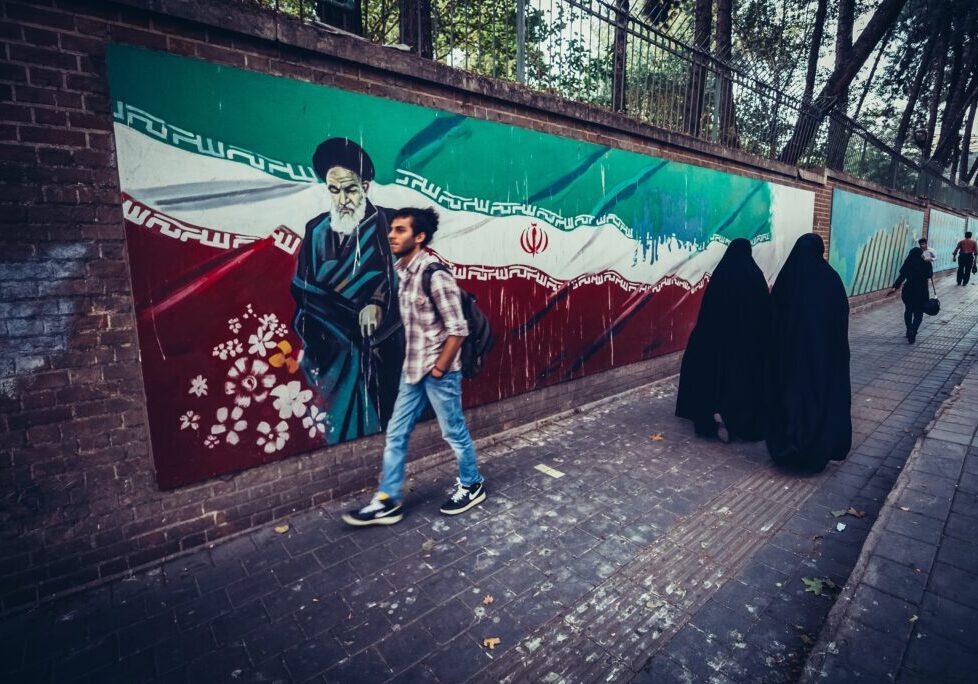Australia/Israel Review
Editorial: The Age of Trump
Nov 23, 2016 | Colin Rubenstein
Colin Rubenstein
Against the predictions of all the pundits, the media and the bookmakers and the expectations of governments around the world, former reality TV-star and real estate magnate Donald Trump will on January 20 become President of the United States.
Trump’s ascent to the Oval Office has been met with disbelief, celebration, concern and in some cases, violent protest. But the election has been decided and those who opposed his candidacy and/or didn’t vote can either be obstructionist, or work productively, in good faith and contribute to the debate to try to better what in many respects is a highly uncertain future.
While Mr. Trump’s rhetoric during the campaign was often controversial and divisive, and his pronouncements about foreign policy sometimes contradictory or confusing, there are some hopeful signs that his presidency may transcend these concerning beginnings. The most important is the powerful role being given to Vice-President-elect Mike Pence as head of the transition team. Pence, the former Governor of Indiana, is by all accounts, an experienced, pragmatic and knowledgeable politician who should temper the rough edges and tendency toward rhetorical broadsides which is so prevalent in Trump’s inner circle.
It is also pleasing to note that President-elect Trump has noticeably adopted a more inclusive and conciliatory tone after what has been a very divisive election, which we hope will continue.
This is well, because the world urgently needs the US to remain a beacon of democracy over coming years and for the next US administration to swiftly develop and pursue a constructive and fully engaged foreign policy – especially in the Middle East and in Australia’s own Asia-Pacific region.
On the Middle East, the President-elect has his work cut out for him following a deliberate policy of US withdrawal under President Barack Obama – contributing to catastrophic consequences in the region, including both the murderous Syrian civil war and the rise of ISIS.
Trump has been vociferous throughout the campaign and even in the days immediately following his election in his stated support for Israel, which I witnessed in his very positive and well-received speech at this year’s AIPAC conference. Trump also told an early Republican debate that “there’s nobody on this stage that’s more pro-Israel than I am…”
The reaction within Israel to Trump’s election has been mixed. Israel’s official line has long been that it will work with whomever is President, though pundits unsurprisingly predict a warmer relationship between Netanyahu and Trump than with his predecessor Barack Obama. For his part, Netanyahu has called Trump “a true friend of Israel” and stated that “we will work together to advance security, stability and peace in our region.”
Somewhat more problematic is Jewish Home chairman Naftali Bennett’s proclamation that Trump’s victory means Israel should abandon the concept of reaching a two-state outcome with the Palestinians. Such a statement is extremely unhelpful, particularly with speculation rife that Obama may use his final months in office to deliver a likely counterproductive Israeli-Palestinian initiative at the UN.
While Trump is now talking of possibly trying to broker an Israeli-Palestinian peace deal, it is worth noting that, encouragingly, he has also called for the Palestinians to drop their culture of incitement and violence and return to direct bilateral negotiations without preconditions, recognising that it is not Israel, or settlements, blocking the resumption of talks toward a two-state outcome.
Trump has also labelled the Iran deal “the worst deal ever negotiated,” while promising to better police its provisions and hold Iran to its strict requirements.
Trump would be wise to take the advice of former Secretary of State Henry Kissinger in constructing his overall Middle East policy. Two days after the election, Kissinger told a New York audience that the biggest challenge facing the region is Iranian domination and America must “make it clear that we are opposed to a further territorial expansion of Iran and what we are asking of the Iranians is to act like a nation, and not like crusaders.”
Trump could also heed Kissinger’s words about defeating Islamic State, something he has pledged to pursue. Kissinger correctly notes that without a follow-up plan, conquering the ISIS strongholds would likely result in a Shi’ite controlled belt from “Teheran to Baghdad to Damascus to Beirut.” America’s objective, Kissinger urged, must be to drive out ISIS but replace it with friendly forces.
This is advice that the Trump Administration will urgently need to heed because of Mr. Trump’s history of expressing admiration and friendship for Russian autocrat Vladimir Putin, and indifference to the perpetuation of the Assad regime. Putin’s Russia has become very much a supporter of the Iranian-Assad regime axis, which is both the main force for regional destablisation and the main perpetrator of atrocities during the Syrian civil war. The actions of that axis are also the main driver of recruitment to ISIS and other radical Sunni radical Islamist terror groups. There can be no effective policy of containing the Iranian hegemonic drive, nor of ending the bloodshed in Syria, that does not involve finding a way to neutralise Russia’s increasingly destructive role (and also, likely to ensure Assad’s departure).
Closer to home, Trump’s election has evoked widespread concern in the Asia-Pacific region, both through his pledge to impose high tariffs on China and the prospect of a general US pivot away from the region, thus undermining the US alliance system. With tensions continually brewing over the South China Sea, it is not clear what role a Trump Administration will play in addressing what is a major security issue for Australia and the region.
In these interesting times, AIJAC wishes the President-elect well in navigating the complex challenges he will face in international affairs and foreign policy, particularly with regard to Israel and the Middle East and hopefully maintaining continued, constructive US engagement in Australia’s own region.
Tags: Middle East






